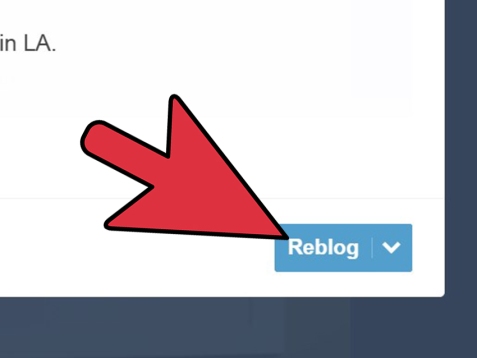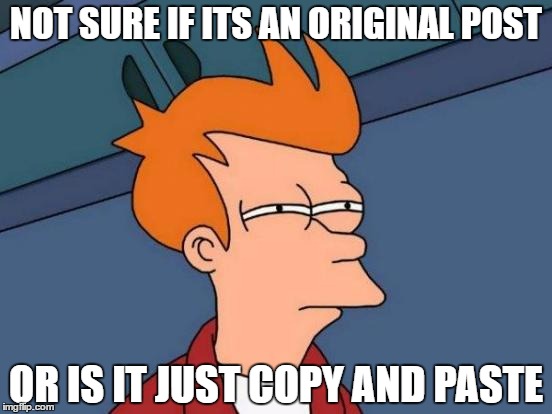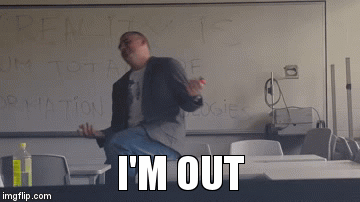Do we notice how hypocritical we are with our information? This is how I see it. We as people post things online. It can range from Facebook, Instagram and all the way down to 4chan. So basically our information is out and in public. What we have learn from Teds lecturers is that people can easily copy and paste our information around. For example Tumblr, once you post a picture people can go around and reblog it as much as they like.

At the same time people can take the post and make it “their own”. As they can just remove the source and copy paste the picture. The internet has now become a copy paste culture or if you like to sugar coat it. “Reblog/Share” network. Another example is a YouTuber I love to watch. Someone copied his name and reposted his videos on a whole new account. People could see it is fake but the thing is that he so easily copy and pasted his videos.

Which comes to my second point. We post our information out to the “public” but then we also want it to be “private”. Do you see where I’m going with this? It’s kind of interesting how this works. Another aspect I would like to point out is how we so called don’t like giving our information to websites. If you think about it we have already given them our information when you decided to sign in an account using your facebook account. By doing that you are giving that website all the same information you have on your facebook. Sounds like a copy and paste to me.

Interesting Blog raising good points about how we view the information we put online. I agree when we sign up for any online account through facebook we forgo our privacy through the ease of signing up by giving access to our information. Any information we put online line isn’t private anymore no matter how much we want it to be its still going out to the public. Overall nice Blog
LikeLike
It is true that the internet has become one big copy and paste machine; all content is shared content. Anytime we interact with the internet we are paying an information tax whether we know it or not. If walled gardens were eliminated (hypothetically), do you think people’s perspective of online privacy would change? Here is an article on the possibility of privacy in cyberspace that I think will add depth to your blog, http://www.npr.org/templates/story/story.php?storyId=5165536
LikeLike
A great post that really discusses that constant issue of is there privacy on a public platform like the internet. The concept of copy paste is something that I think is more prevalent in our lives than we think. At the end of the day, that’s how things go viral on the internet. Regardless if you intended it to be seen by everyone or just share something funny with your friends, the thing you shared could be made viral on multiple platforms without you even knowing it is happening.
LikeLiked by 1 person
I completely agree with the idea of posting our information (especially on Facebook) to the public but then wanting out privacy as well, it’s confusing. I find this is quite prevalent when looking at Instagram in particular. Instagram allows for users to make their account private if they wish and choose who they want to view their photos, which is basically challenging the whole idea of a photo being “public” to a selected number of people (so it’s also private in regards to the rest of the Instagram community). I also agree with the copy and past culture, it is especially seen on Tumblr where images and texts posts are reposted so many times at a point you forget where it came from.
Anyway I really liked your blog, your ideas were very out of the box and you found a way to talk about the topic in a different light which is great! I think you should include some hyperlinks in your post to some material which will back up your ideas and make your statements a bit more solid.
LikeLike
Your title made me think of something John Oliver said on his show back in 2015: “We all, naturally, want perfect privacy and perfect safety, but those two things cannot co-exist.” He was of course talking in regards to the increase in surveillance, but I think it carries across here as well. On the internet, we essentially want the freedom to do whatever we want in a private network online, but by participating in a globally connected internet network, we sacrifice our privacy, prioritising the freedom of information over our craving to remain ‘safe’ or in control of our data. With web services/apps (such as Facebook), we may have the privilege of having privacy settings to play around with, but at the end of the day, Facebook knows all.
I’m not sure I agree with your statement however, about handing over your Facebook data when signing up to other sites using this service. You may be using this network to create an account/sign in on this other website (which can at times be more beneficial, Facebook has a pretty secure password database from my understanding, and you never know how secure new website password databases are. https://www.youtube.com/watch?v=yoMOAIzBSpY), but that doesn’t necessarily grant permissions to all your data.
LikeLike